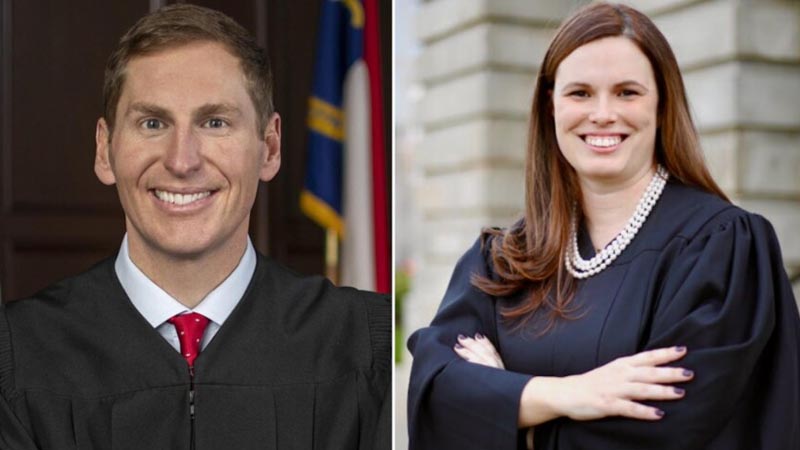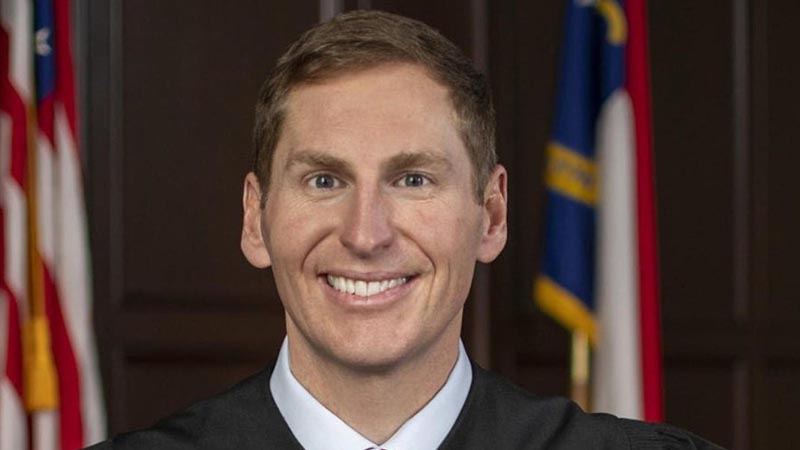Republican Judge Challenges Certification of Democratic Justice Allison Riggs in Tight State Supreme Court Race

Republican Jefferson Griffin (left) and Democrat Allison Riggs (right) are locked in a contentious battle for a seat on North Carolina’s Supreme Court. (Courtesy of the State of North Carolina | The Chronicle)
At the request of GOP Judge Jefferson Griffin, the Republican-majority state Supreme Court has temporarily blocked the certification of Democratic Justice Allison Riggs’ election to the state’s highest court. Riggs, the incumbent, currently leads Griffin by 734 votes in the closely contested race.
Griffin, an Appeals Court judge, is challenging the validity of over 60,000 votes, arguing that discounting them could secure him the victory. His campaign claims these votes were cast by individuals who did not include a driver’s license number or partial Social Security number on their voter registration applications. Republican lawyers argue these voters are not legally registered, despite many having voted regularly for years.
After the state Board of Elections dismissed Griffin’s protests last month, he appealed to the state Supreme Court, which has a 5-2 Republican majority. The state Board initially moved the case to federal court, but on Monday, U.S. District Judge Richard Myers II returned it to state court.

On Tuesday, the state Supreme Court issued a temporary stay, citing the urgency of resolving the matter. The court noted that the state Board of Elections intends to appeal Myers’ decision but emphasized that “in the absence of a stay from federal court, this matter should be addressed expeditiously because it concerns certification of an election.”
Democratic Justice Anita Earls dissented, asserting that the standards for granting a temporary stay had not been met. Justice Riggs recused herself from the case to avoid any potential conflict of interest.
This controversy is not the first time Republicans have sought to challenge voter eligibility. Last year, the GOP argued in a lawsuit that over 225,000 voters who lacked such registration details should be removed from voter rolls or forced to cast provisional ballots. That lawsuit was partially dismissed by Judge Myers.
The stakes are high as the state Supreme Court’s decision could set a precedent for election challenges and voter eligibility rules. Critics argue that Griffin’s efforts undermine the will of voters and could disenfranchise tens of thousands who have consistently participated in elections.
The case remains unresolved, with the state Supreme Court’s final decision potentially determining the outcome of the election and raising questions about electoral fairness and voter rights.


